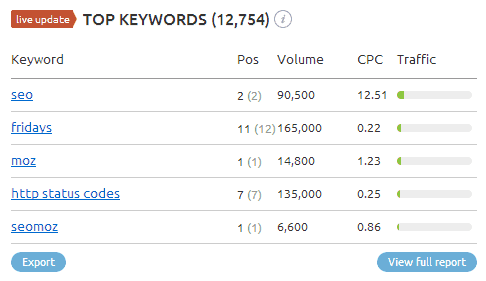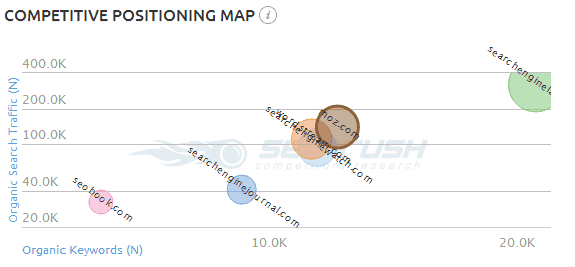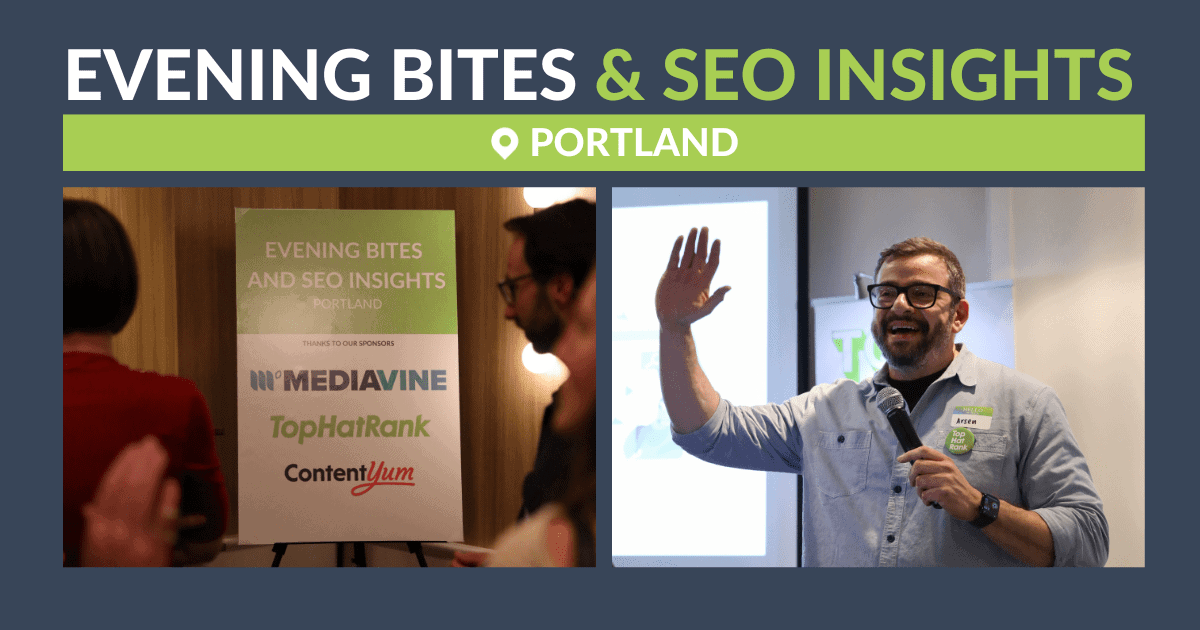Why You Should Stop Selling SEO!

I’ve been doing sales for a very long time. Before starting TopHatRank.com, I was a partner of a national insurance agency, we had licensed insurance agents selling term life insurance in all 50 states over the phone. YES, life insurance!
It is one of the hardest products to sell and we (I), were amazing at it. We used every trick in the book to get our prospects to see the benefit in paying for a product that is not tangible. They will never be able to hold, touch, smell, see or personally benefit from this product. They were paying for a few sheets of paper that promised to pay their loved ones a certain amount of money in case of the insured’s death (depending on how and when death occurred).
We were paid per policy sold, the business model was “quick, massive acquisition” of clients. The more policies we closed the more money the insurance carrier paid us (commissions). Once the sale was done, we never spoke to our clients again, all customer service was handled by the insurance carrier.
When I got into SEO, I quickly realized that you cannot sell SEO, especially if you want your agency to have a high client retention rate. People who are SOLD search engine optimization services (especially SOLD CHEAP SEO services) are never going to be satisfied, they will most likely never see an ROI and are MOST of the time, ALL of the time are lied to….
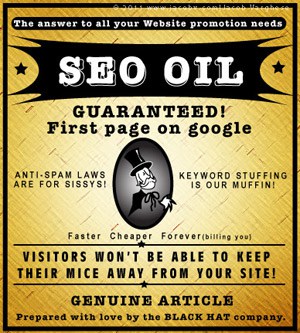
The Correlation Between Snake Oil and SEO
Prior to the widely acclaimed Federal Food and Drugs Act (1906), traveling salesmen often sold their products by making outrageous claims. The more exaggerated the statement (“Cures baldness in 14 days”) and the more widespread the problem, the more lucrative the business.
Of course, getting tarred and feathered by unhappy customers was a deterrent, but it didn’t stop the brave souls who came to be known as “Snake Oil Salesmen.”
The same thing goes on today in SEO – the most obvious version being, “We will get your business listed on the first page of search results (SERP).”
Too good to be true? Probably is! Anyone with any SEO knowledge whatsoever (read that “Hardly anyone”) knows the foolishness of that statement. No SEO firm can guarantee top spot in organic listings. End of story.
The only real guarantee in search engine optimization(SEO) is that it’s going to be a tough, drawn-out ride – and the search engines can tip your canoe overnight!
How SEO Got a Bad Rap
At the core of the issue are companies that are taking advantage of the consumer’s lack of basic SEO knowledge or understanding. Many businesses owners know they NEED SEO but do not understand what’s involved in SEO. Most just think that it’s some “Computer Stuff” and blindly sign up with anyone who guarantees page 1 rankings with a very low price tag.
So, almost immediately after launching a business website, a business is going to begin getting calls / robocalls / emails from SEO salespeople. Those calls will fall into one of three general categories:
- Pure unadulterated canned bull and spam: These are the guys who not only promise to get any client to the front page of Google, but some claim to BE Google. The recipient’s best bet is to hang up. The caller is a thief and a liar. No matter how much this is stressed, thousands of small businesses are getting ripped off every day. They really believe Google is calling them and will move their site to the number one spot for a few hundred bucks. It’s sad-but-true story.And once those businesses get ripped off, they look at every SEO firm with disdain and doubt. I hate it; I really do
- SEO sales agents: These represent legitimate firms who can probably help the client understand and apply SEO principles. Unfortunately, though, the caller isn’t an SEO practitioner, but a commissioned salesperson.99.9% of the time, the sales training that person receives comes from the “Get the order no matter what” school of thought. Numbers lead the way. We need to make a certain amount of sales today and – if you want to keep your job – you had better deliver your part of those sacred numbers. If your sales team works like this … PLEASE keep reading. It’s WRONG, and it hurts us all.
You see, these two types of SEO sellers have one thing in common: They both give SEO (and sales in general) a bad name.
But, it doesn’t have to be like that.
How To Stop Selling SEO
There is a third type of SEO seller. This is the one who doesn’t sell at all… they consult, invest time into pre-proposal analysis and present the prospect with hard data which will help them make an educated decision.
Your real job is not to SELL everyone you speak with, but to determine the TRUTH of their situation to see whether the services or products you offer can benefit them. That genuinely helpful attitude will increase your SALES … but without “selling.”
Debbie White, who has directed sales for the likes of Starwood Hotels; motivational speaker, Les Brown; and super-coach, Bob Proctor, teaches a trust-based approach to sales – and I wish every SEO on the planet would listen to her counsel.
Debbie Says:
The interesting secret about sales that most people don’t understand is that buying is a very human phenomenon, and we humans respond in predictable ways.
We do not like being ‘pitched’ nor do we like being told what to do by those who we feel don’t understand us or care about what we perceive as important. We do not buy from people who we think are using us for their own objectives. Despite the popularity of a push-to-close selling style, any sales approach that is overbearing or manipulative is based on a LACK of understanding of human behavior. Selling is simply a skill … like any other skill you have gained in your life. Selling based on Trust and Integrity is a CHOICE.
A Better Approach to SEO Sales
I’m no sales guru, but I have learned to adapt my own attitude during a conversation with a prospect to line up with the trust-based approach.
I no longer see the potential client as someone to be convinced, closed, or sold … but as a business owner who could benefit from my experience and perspective.
When you move from “salesperson” to “consultant” an amazing thing happens: If you have previously been one who dislikes sales and would rather pass the job off to someone else, you find that sales presentations become enjoyable – somewhat like having a significant conversation with a friend.
You lose your FEAR of SALES and begin to develop a love of sales. And THAT, my friend, can have a huge impact on your bottom line.
Here are a few of the actions I take when speaking with someone about whether or not TopHatRank’s SEO services are right for his or her particular business:
- Explain the role of SEO – SEO is NOT instant gratification. It takes time, work, patience, and a realistic budget to sustain an SEO campaign. If you’re doing outbound sales and the prospect doesn’t have sufficient desire, your job is to help uncover the need and point it out. If it’s inbound and the prospect doesn’t have the budget (and not everyone does), don’t push to close. Be a friend. Point out the Moz Beginner’s Guide to SEO and the possibility of getting started with the basics in-house. At the very least, you will gain a friend and be of value.
Great customer service deserves recognition, a big thank you to @TopHatRank for the tips and direction! #Seo #thankyou #experts #search
— One-Flag (@OneFlagAmerica) March 12, 2015
I’m not saying you should quickly give up on everyone who expresses a price objection – but you and I both know that not every business can afford professional SEO services (at least not right now).
- Ask the right questions – As an SEO consultant, you need to know some particulars about the prospect’s business: What is the company’s most profitable product or service? Historically, what are the characteristics of the best clients or customers? Who are the primary competitors (online and offline)? Ask about short term and long term goals. Is there a developer in place to handle the site changes? Is there a content writer on staff? Questions like these will help and are essential if you are to provide a proper initial analysis of the prospect’s situation as well as help you format a customized proposal that will address all of your client’s needs.I usually send my prospective clients a questionnaire to fill out, I want them to invest the time into answering each question. This helps them understand that we are not just another SEO company and if the prospect takes time to answer the questions, we know that they are serious about marketing their business.
- Run an initial crawl of the website – I use Site Auditor, by Raven Tools. Its not a FREE “stand-alone” tool, but hey, you have to invest in yourself before other will invest in you. Good tools cost money and save you lots of time.
The Site Audit Summary reports are amazing at listing the issues and describing them. You can also download the results in PDF format, brand them with your company’s logo and style the report to match your brand’s colors.I’ve tried many different website auditors for my “pre-sale initial site audits”, I stick with Raven because I am able to create a profile for just my prospects and keep as many campaigns (websites) in there as I need . Once the prospects converts into a client, we move them to a “active clients” profile, this way my team is able to us Raven the way it’s intended to be used (Internet Marketing Software) and not a sales tool.PRO TIP: Hate following up with prospects? The site auditor has a crawl comparison report (if you set it up to crawl a site every week/month) that will show a side-by-side comparison between crawls. I quickly download and email these to my prospects; it’s a good (non-invasive) way to follow up with them via email and show them what’s been happening with their website over-time. This tactic works really well and most of the time I get a phone call from the prospect to go over the results.
- Conduct historic analysis of the domain using SEMrush (Raven brings in SEMrush data as well, but I like SEMrush’s UI). Here, again, bite the bullet and invest the money. Take a look at keywords and traffic over time. Notice spikes and notice drops, then correlate them to Google algorithm refreshes over time.
Look at the ranking keywords and percent of volume (which keywords are bringing in the most traffic – remember to account for localization).
Look at your prospect’s competitors to see how keywords and performance compare. Choose the most prominent competitor(s) and run a domain-to-domain analysis.
- Consider the backlinks. Look at anchor texts, look at landing pages, and look at the amount of referring domains. Compare what you see with the competitors. Here again, your SEO knowledge of algorithm changes will allow you to surmise things novices will miss. How has the site performed over time? Which backlinks are of most value? Which could be doing more harm than good? Where are competitors getting backlinks?PRO TIP: Those who want to get down to the nitty-gritty with link-building can also check out Jon Ball’s organization. Jon and his team are outspoken advocates of the value of good, relative links.
- Look closely at the results – Auditor results and competitive data don’t mean anything unless you are able to interpret it. Nothing but on-the-ground experience and constantly working to keep up with the dynamic world of search engine optimization will do the trick here. You can buy the education, but you can’t buy the experience – you have to earn it. You have to be able to absorb all this data and formulate an SEO strategy that will accommodate your prospect’s needs and budget.If you’re a business owner, make sure the agency you are considering can show a track record of success. Wannabe SEO “experts” can do a whole lot more harm than good. Much of the business we get here at TopHatRank first requires us to clean up someone else’s mess before we can implement the best approach
Get all of this data together, then present your findings to the prospect. I always email my findings along with an initial strategy outline to my prospects and attach the branded crawl report to the email. The email is usually long, has screenshots from SEMRush and is broken down into sections (almost like writing a blog post) covering all the points listed above.
Don’t just dump it on the CEO’s desk/inbox, you put a lot of work into this analysis before even taking a penny from your prospect. Make sure to set up a time to go over everything together – in person, if possible, or arrange a meeting between the prospect’s team and your team via video chat. Sharing a screen and looking at the data together lessens the chance of a gross misunderstanding.
Most importantly, DO NOT SELL SEO.
Your primary job, at this juncture, is to share what you have uncovered with someone who needs that information. Explain how you would approach the situation and why. If you uncover a legitimate need – and if your company can help fill that need – then there is obvious reason for you and the prospect to do business together.
If, on the other hand, there isn’t a good fit between your capabilities and the prospect’s needs, then SAY SO. In the end, the prospect will thank you for the honesty and may then refer others who are more suited to become your clients.
SEO, done right, is an ongoing job. It is a commitment on behalf of both the SEO firm and the client. When you come alongside as a consultant, rather than as a salesperson, the probability of a favorable outcome is much, much higher.
When I stopped selling SEO, I was able to convert more prospects into clients, appeal to clients who have the needed budgets and realistic expectations. I became a valued professional businesses need.
It can be a scary world out there. Go forth and help people!

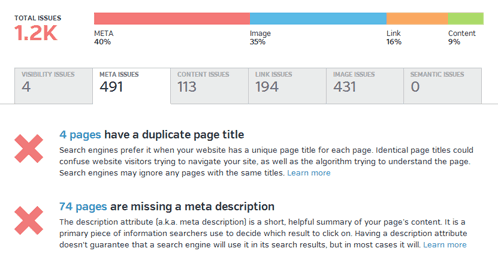
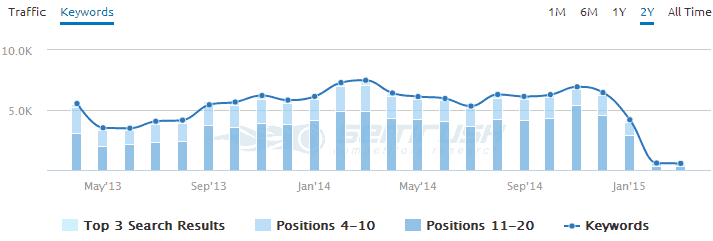
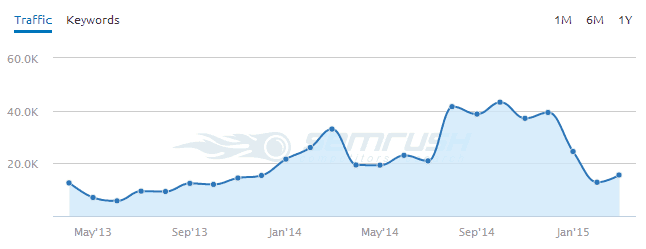 Look at the ranking keywords and percent of volume (which keywords are bringing in the most traffic – remember to account for localization).
Look at the ranking keywords and percent of volume (which keywords are bringing in the most traffic – remember to account for localization).